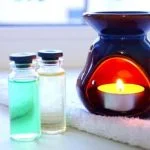Aromatherapy has gained popularity in recent years as an alternative approach to health and wellness. But what exactly is aromatherapy, and why do people use it? In this article, we will delve into the world of aromatherapy, exploring its origins and the reasons why individuals choose to incorporate it into their daily lives.
Aromatherapy can be defined as the practice of using natural plant extracts, known as essential oils, to promote physical and psychological well-being. The use of aromatic plants for therapeutic purposes dates back centuries, with ancient civilizations such as the Egyptians, Greeks, and Romans harnessing the power of scent for medicinal purposes.
But what makes aromatherapy so special? It all comes down to how our brain processes scents. When we inhale an aroma, the olfactory system sends signals directly to the limbic system in our brain – the area responsible for emotions, memories, and behavior. This direct connection between scent and emotion is what sets aromatherapy apart from other forms of therapy.
One of the primary reasons people turn to aromatherapy is its ability to promote relaxation and reduce stress. Essential oils like lavender and chamomile have calming properties that can help ease anxiety, improve sleep quality, and restore a sense of calmness in our busy lives. Aromatherapy is often used in practices such as massage therapy or meditation to enhance relaxation benefits.
In summary, aromatherapy is a practice rooted in tradition that seeks to harness the natural healing powers of plants through essential oils. Its ability to impact our emotions and mental well-being makes it a popular choice for those seeking alternative approaches to health.
From promoting relaxation to managing pain and even boosting immunity, there are numerous reasons why people use aromatherapy. In the following sections of this article, we will explore these aspects in more detail, providing practical tips on incorporating aromatherapy into your daily routines.
The Power of Scent
Aromatherapy has been used for centuries as a natural healing practice. The power of scent plays a significant role in how aromatherapy works on the brain, and understanding this process can help explain why people turn to this ancient practice for their overall well-being.
When we inhale different scents, they travel through the olfactory system and interact with our brain’s limbic system. The limbic system is responsible for regulating emotions, memory, and mood. This direct connection between scent and emotion is what makes aromatherapy effective in promoting relaxation and reducing stress.
Certain essential oils have been found to have specific effects on the brain. For example, lavender oil has been shown to have a calming effect on the nervous system, making it an excellent choice for those experiencing anxiety or trouble sleeping. On the other hand, citrus essential oils like lemon or orange can help uplift mood and increase feelings of energy and focus.
Additionally, when certain scents are associated with positive memories or experiences, they can trigger a nostalgic response in our brains. This is why aromatherapy can be particularly effective in promoting emotional support and improving mental health. By using scents that evoke positive emotions, individuals can create a calming and safe environment that promotes overall well-being.
Incorporating aromatherapy into daily rituals can be done in various ways. Diffusing essential oils throughout your home or workspace allows you to continuously experience the benefits of your chosen scent. Adding a few drops of essential oil to bathwater or massage oil can also provide a soothing experience for both the body and mind.
Overall, understanding how aromatherapy works on the brain showcases its potential as a powerful tool in promoting relaxation, emotional well-being, and overall health. By harnessing the power of scent through essential oils, individuals can tap into nature’s healing properties to enhance their daily lives.
Promoting Relaxation and Reducing Stress With Aromatherapy
Aromatherapy has long been known for its ability to promote relaxation and reduce stress. The use of essential oils in aromatherapy can have a profound effect on the body and mind, helping individuals find calm and peace in their daily lives.
One of the main ways that aromatherapy promotes relaxation is through the power of scent. When essential oils are inhaled, they are carried directly to the olfactory system in the brain. The olfactory system is closely linked to the limbic system, which controls emotions and memories. As a result, certain scents can trigger feelings of relaxation and reduce stress levels.
Some of the most commonly used essential oils for relaxation include lavender, chamomile, and bergamot. Lavender oil, in particular, has been found to have a calming effect on both the mind and body. Studies have shown that inhaling lavender oil can help decrease heart rate and blood pressure, leading to a state of deep relaxation.
In addition to inhaling essential oils, another effective way to use aromatherapy for relaxation is through massage or bath blends. When combined with carrier oils or added to bathwater, essential oils can be absorbed through the skin and provide a soothing sensation throughout the body. This direct application allows for targeted relaxation of tense muscles and further enhances the overall calming effects of aromatherapy.
| Essential Oil | Benefits |
|---|---|
| Lavender | Reduces anxiety and promotes restful sleep |
| Chamomile | Calms nerves and alleviates stress-related symptoms |
| Bergamot | Uplifts mood and relieves tension |
Managing Pain and Improving Sleep Quality Through Aromatherapy
Pain and sleep are two crucial aspects of our overall well-being, and managing them effectively can greatly improve our quality of life. Aromatherapy has been found to be a helpful tool in managing pain and improving sleep quality for many individuals.
When it comes to pain management, certain essential oils used in aromatherapy have analgesic properties that can help alleviate pain. For example, lavender oil is known for its calming and soothing effects, which can help reduce inflammation and provide relief from headaches, muscle aches, and joint pain. Peppermint oil has cooling properties that can be effective in relieving tension headaches and migraines.
In addition to pain management, aromatherapy can also have a positive impact on sleep quality. Many essential oils used in aromatherapy have sedative effects that can promote relaxation and help individuals fall asleep faster and have a more restful sleep. Some common essential oils used for this purpose include lavender, chamomile, and ylang-ylang. These oils have calming properties that can reduce anxiety and stress levels while creating a peaceful environment conducive to better sleep.
Incorporating aromatherapy into your bedtime routine is easy and can significantly improve your sleep quality. You can use essential oils in a variety of ways, such as diffusing them in your bedroom before going to bed or adding a few drops to your pillowcase or bedding. Taking a relaxing bath with aromatic oils before bedtime is another great way to unwind and prepare your body for sleep.
Overall,Aromatherapy has shown promise in managing pain effectively and improving the quality of sleep for many individuals. By harnessing the power of scent through the use of essential oils, people can find relief from physical discomforts and achieve a more restful night’s sleep.
Natural Remedies
Aromatherapy has long been used as a natural remedy for various common ailments. Its ability to harness the power of essential oils can provide soothing relief and support the body’s natural healing processes. Whether it’s a headache, cold symptoms, or digestive issues, aromatherapy offers a range of benefits that can help alleviate these everyday health concerns.
Headaches and Migraines
One of the most common uses of aromatherapy is for relieving headaches and migraines. Certain essential oils, such as lavender and peppermint, have analgesic properties that can help reduce pain and promote relaxation. These oils can be applied topically to the temples or back of the neck, or inhaled by using a diffuser or aromatherapy inhaler.
Colds and Congestion
When suffering from a cold or congestion, aromatherapy can provide much-needed relief. Eucalyptus and tea tree essential oils are often used for their antibacterial and decongestant properties. They can be added to a steam inhalation treatment or used in a diffuser to help clear nasal passages and relieve respiratory discomfort.
Digestive Issues
Aromatherapy can also be beneficial in alleviating various digestive issues such as indigestion, bloating, and nausea. Essential oils like ginger and peppermint have been traditionally used to soothe the stomach and improve digestion. These oils can be applied topically on the abdomen after dilution with carrier oils, or they can be inhaled using an aromatherapy diffuser.
By incorporating aromatherapy into your daily routine, you may find relief from common ailments without resorting to harsh medications or treatments. However, it is important to note that while aromatherapy can offer support for common health concerns, it is not meant to replace medical advice or treatment. If symptoms persist or worsen, it is always recommended to consult with a healthcare professional.
Boosting Immunity and Enhancing Overall Well-Being With Aromatherapy
Aromatherapy has been widely recognized for its ability to boost immunity and enhance overall well-being. By harnessing the power of essential oils, aromatherapy offers a natural and holistic approach to support the body’s immune system and promote optimal health.
Strengthening the Immune System
One of the primary benefits of aromatherapy is its potential to strengthen the immune system. Essential oils such as tea tree, eucalyptus, and oregano have strong antimicrobial properties that can help fight off viruses and bacteria. These oils may also stimulate the production of white blood cells, which play a crucial role in defending the body against foreign invaders.
Reducing Inflammation
In addition to supporting immune function, certain essential oils used in aromatherapy possess anti-inflammatory properties. For example, lavender oil has been found to reduce inflammation and ease symptoms associated with conditions such as arthritis and allergies. By reducing inflammation in the body, aromatherapy not only helps alleviate pain but also supports overall well-being.
Promoting Relaxation and Stress Reduction
It is widely known that stress weakens the immune system. Aromatherapy can help combat this by promoting relaxation and reducing stress levels. Essential oils like lavender, chamomile, and bergamot have calming effects on both mind and body when used in aromatherapy practices. Through their soothing scents and therapeutic properties, these essential oils can help lower stress hormones like cortisol, allowing for a greater sense of calmness that strengthens overall well-being.
By incorporating aromatherapy into your daily routine, you can naturally boost your immunity and improve your overall well-being. Whether through diffusers, inhalers, massage oils or bath salts, there are numerous ways to enjoy the benefits of aromatherapy at home or on-the-go.
Experiment with different essential oil blends known for their immune-boosting properties and find what resonates best with your personal preferences and needs. Remember to consult a qualified aromatherapy practitioner or healthcare professional before using essential oils, especially if you have any existing health conditions or medications that may interact with them.
Aromatherapy as an Alternative Medicine
Aromatherapy has gained popularity in recent years as an alternative medicine, offering a natural and holistic approach to healing and well-being. While it is important to note that aromatherapy should not replace conventional medical treatments, many people find it to be a valuable addition to their healthcare routines. This section will explore the efficacy of aromatherapy as an alternative medicine and its potential benefits.
One aspect that contributes to the effectiveness of aromatherapy is the use of essential oils derived from plants. These oils contain powerful chemical components that can have various therapeutic effects on the body and mind. For example, lavender oil is known for its calming properties and can help reduce anxiety and promote relaxation. Peppermint oil, on the other hand, can help alleviate headaches and improve concentration.
It’s important to note that while there is anecdotal evidence supporting the effectiveness of aromatherapy, scientific research in this field is still limited. However, some studies have shown promising results.
For instance, a study published in the Journal of Clinical Nursing found that inhaling lavender oil reduced stress levels and improved sleep quality in patients with insomnia. Another study published in Pain Management Nursing showed that applying essential oils topically helped alleviate pain in patients with chronic conditions such as fibromyalgia.
Aromatherapy for Emotional Support and Mental Health
Aromatherapy is not only beneficial for physical well-being but also plays a crucial role in emotional support and mental health. The power of scent has a direct impact on our brain and emotions, making aromatherapy an effective tool for promoting emotional balance and overall mental well-being.
One of the primary ways aromatherapy supports emotional health is by helping to manage stress and anxiety. Certain essential oils, such as lavender and chamomile, have calming properties that can help reduce feelings of tension and promote relaxation. Inhaling these oils through diffusers or applying them topically can provide a sense of peace and tranquility, relieving symptoms of stress and anxiety.
Furthermore, aromatherapy can also aid in improving mood and uplifting emotions. Essential oils like bergamot, lemon, or rosemary can boost mood and have an energizing effect on the mind. Aromatherapy works by stimulating the limbic system in the brain responsible for regulating emotions. When used consistently over time, these oils can contribute to improved emotional stability and a more positive outlook on life.
To incorporate aromatherapy into daily rituals for emotional support and mental health, there are several practical tips to follow:
1. Create a peaceful environment: Use a diffuser with calming essential oils like lavender or sandalwood to create a soothing atmosphere at home or work.
2. Personal inhalers: Carry a personal inhaler filled with your favorite essential oil blend wherever you go. Inhaling these scents throughout the day can provide instant relief during moments of stress or overwhelm.
3. Bath time ritual: Add a few drops of your preferred essential oil to warm bath water for a relaxing and rejuvenating experience that eases tension.
Incorporating Aromatherapy Into Daily Rituals
In conclusion, aromatherapy offers a wide range of benefits that make it a popular choice for many individuals seeking natural remedies and relaxation techniques. Whether you are looking to reduce stress, manage pain, improve sleep quality, or boost your overall well-being, aromatherapy can be a valuable addition to your daily rituals.
One practical tip is to start small and experiment with different scents to find what works best for you. Essential oils such as lavender, chamomile, and eucalyptus are known for their calming properties, while citrus scents like lemon and orange can help uplift your mood and increase energy levels. It’s important to note that everyone’s preferences may vary, so don’t be afraid to try different combinations until you find what resonates with you.
Another idea is to incorporate aromatherapy into your self-care routine. You can create a relaxing atmosphere by diffusing essential oils in the bedroom before bedtime or during a soothing bath. You can also create personal blends by mixing different oils together to create a unique fragrance that suits your needs.
Lastly, consider using aromatherapy as a form of emotional support and mental health therapy. The power of scent has been shown to have a profound impact on our emotions and overall well-being. You can use essential oils like lavender or chamomile during moments of anxiety or stress to promote relaxation and calmness. Additionally, certain oils like peppermint or rosemary may help improve focus and concentration when working or studying.
Incorporating aromatherapy into your daily rituals doesn’t have to be complicated or time-consuming. With these practical tips and ideas, you can easily integrate the healing power of scent into your everyday life for enhanced well-being and improved quality of life. So why not give it a try? Your mind, body,and soul will thank you for it.
Frequently Asked Questions
How Does Aromatherapy Make You Feel?
Aromatherapy has the power to evoke various emotions and feelings within an individual. Different scents can have different effects on people, but overall, aromatherapy aims to promote relaxation, uplift mood, and reduce stress and anxiety.
When you breathe in the pleasant aromas from essential oils, it can create a sense of tranquility and peace within your mind and body. The fragrance can transport you to a more peaceful state of mind, making you feel calm, centered, and rejuvenated.
What Are the Psychological Benefits of Aromatherapy?
Aromatherapy has an array of psychological benefits that can positively impact mental well-being. In addition to promoting relaxation and reducing stress levels, it can also help improve focus and concentration. Specific scents like lavender or chamomile have proven to enhance sleep quality by inducing a sense of calmness before bedtime.
Aromatherapy can also stimulate positive emotions such as happiness, joy, or invigoration depending on the particular scent used. It’s often used as a complementary therapy for managing mood disorders like depression or anxiety by promoting emotional balance.
How Does Aromatherapy Calm You?
Aromatherapy has the ability to calm both mind and body through its effect on our senses. When we inhale certain essential oils, it stimulates receptors in our olfactory system which are directly linked to our brain’s limbic system – responsible for emotions and memories.
This connection triggers the release of neurotransmitters like serotonin and dopamine which play a role in regulating mood and reducing anxiety levels. The scent itself acts as a soothing agent for our nervous system by activating relaxation responses like slower breathing rates and decreased heart rate, allowing us to achieve a state of calmness and inner peace.

Are you looking for a natural way to improve your health and wellbeing?
If so, aromatherapy may be the answer for you.





